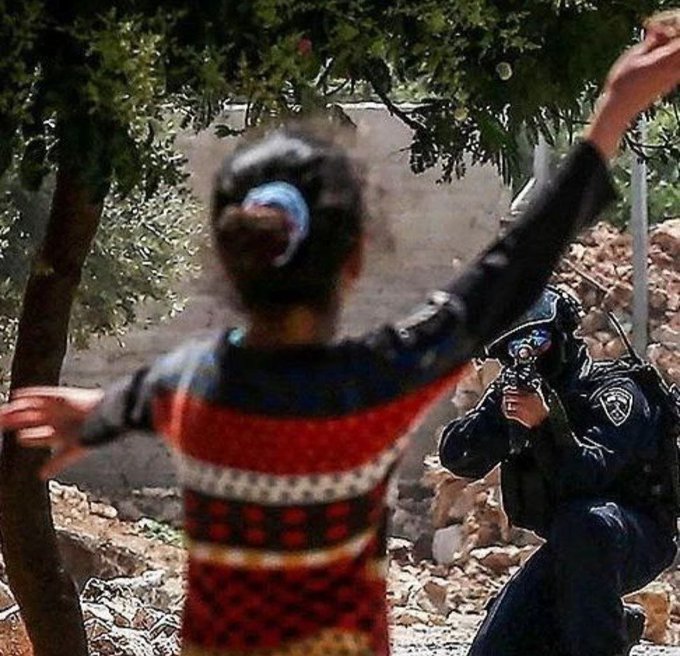(April 8, 2022 / JNS) How many deadly terrorist attacks must take place inside of Israel before it starts being called another intifada? Thursday’s incident in which a Palestinian gunman killed three and wounded several others in downtown Tel Aviv left Israelis wondering about whether the fourth such atrocity in the last few weeks is merely the beginning of a new security crisis. But what this series of murders is called is less important than whether the world reacts as it always has to violence against Israel with more sympathy for the killers than their victims.
Yet even at times such as these, some American Jews neither empathize with the people of Israel nor support their right to self-determination or self-defense. The publicity given to the
decision of a Chicago synagogue to officially declare its house of worship to be dedicated to the cause of anti-Zionism might have made it an outlier to the more than 80 percent of American Jewry that
polls say thinks that “caring about Israel” is essential to being Jewish. But the attention given Tzedek Chicago, as the synagogue is named, is just the latest instance in which the hostility of Jews on the far-left to Israel’s existence has been illustrated.
Its members and those who share their views claim that the existence of Israel is an injustice. They subscribe to a version of Judaism that doesn’t merely discard some of the religious beliefs and practices that most Jews have long held sacred—as is the case with the majority of American Jews who identify with the liberal denominations. Both Reform and Conservative Judaism officially subscribe to Zionism. But portions of the Reconstructionist movement and other offshoots of non-Orthodoxy Jewry go further and fetishize the Diaspora. Theirs is a Judaism stripped of its particularity and its roots in the Land of Israel and Jewish peoplehood, and which consists solely of universalist beliefs that bizarrely seem to hold that all peoples have basic rights but the Jews.
Anti-Zionism had considerable support until 1948 because many Jews feared that the creation of a Jewish state would undermine their right to equal citizenship. But the Holocaust proved the need for a Jewish state, and rather than undermine Jewish rights, Israel’s creation made all Jews stand up taller while also inspiring most Americans to greater respect for their Jewish neighbors.
While Reform’s 1885 “Pittsburgh Platform” was officially anti-Zionist, the movement evolved in the 20th century, and the two greatest leaders of American Zionism in the first half of the 20th century were Reform rabbis—Abba Hillel Silver and Stephen Wise (who is unfortunately better remembered for his silence and opposition to efforts to rescue European Jews during the Holocaust).
Support for Zionism became normative among American Jewry, which rallied to the Jewish state’s defense during the crises of 1948, 1967 and 1973. But the problem was that the tribal and sectarian nature of Israel seemed to contradict the universalist and non-sectarian ideals of many Americans. That was especially true among Jews whose political liberalism made them more likely to take a dim view of a country founded on the notion of defending a specific people rather than one that viewed its mission in broader terms.
Seen in that light, the small but not entirely insignificant comeback of anti-Zionism in the last generation is not surprising.
Though anti-Zionist groups like Jewish Voices for Peace and IfNotNow don’t have mass followings, their foothold on college campuses has begun expanding into the rest of the community. Support in the leftist base of the Democratic Party for toxic ideas like intersectionality, which analogizes the Palestinian war on Israel with the struggle for civil rights in the United States, is growing. The ability of ideologues to promote critical race theory indoctrination into schools and corporate settings also provides a platform for anti-Zionists. That concept illogically labels Jews and their state as beneficiaries of “white privilege” and therefore oppressors by definition.
In practice, this creates a justification for anti-Zionism and those who believe in singling out the Jewish state for discriminatory BDS boycotts. It also provides a rationale for denying to Jews the same rights no one would think of denying to any other people, thus giving a pass to behavior that is indistinguishable from anti-Semitism.
This matters because Jews who support anti-Zionism provide intellectual cover and legitimacy for those who aren’t content to merely talk about a world without an Israel but to inflict violence that seeks to advance that perverted goal. And that is why the contrast between recent events in Israel and the virtue-signaling in Chicago stands out.
In the past, even if they condemned acts of terrorism against Israel, the international press and supposedly friendly Western governments have always wound up blaming the victims in one way or another. But those who claim, as some are doing now, that the actions of the killers were an understandable, if regrettable, reaction to the “occupation” or to some other item from a laundry list of alleged Israeli sins are once again misunderstanding the nature of the conflict.
As the Palestinians have made clear throughout the last century, their problem isn’t with what Israel does but the mere fact of its existence. Having seen them reject numerous two-state-solution deals over the last generation, support for such a scheme among Israelis has dwindled.
The idea of more than 7 million Israeli Jews giving up the sovereign state that protects their national existence is madness. That’s not just because the invasion of Ukraine illustrates what happens when hostile neighbors feel empowered to attempt to destroy a country. It’s also the lesson that even a cursory knowledge of Jewish history imparts to its students. For 20 centuries, Jewish powerlessness and the lack of sovereignty over its ancient homeland was a prescription for degradation, oppression and slaughter that culminated in the Holocaust.
Viewed with hindsight, debates among Jews about the merits of a Jewish state prior to the Holocaust seem foolish. But with many thinking that a Jewish state was a pipe dream while establishing rights for religious minorities in countries where anti-Semitism was prevalent was the priority, these arguments make more sense. But the slaughter of 6 million men, women and children was the final proof that Jewish powerlessness could no longer be tolerated, and that the right of Jews to their ancient homeland had to be reasserted.
Still, anti-Semitism and intolerance for Jewish power didn’t die with the Nazi regime; it remains inextricably tied to Palestinian national identity and Islamist ideology. It also found a home on the intersectional left. As they have proven again and again, the Palestinian goal is not stripping Israel of the territories it won in a defensive war in 1967. They will not recognize the legitimacy of a Jewish state no matter where its borders are drawn.
Those Jews who now call themselves anti-Zionist are not, as some claim, advocating for a more just world or the redress of Arab grievances. A world without Israel cannot be achieved by any means but by waging war on its citizens, and taking their freedom and rights from them by force. Whether they admit it or not, these anti-Zionists are taking the side of those who seek to eliminate the one Jewish state on the planet by the same violent means and hateful ideas that have always been the toolkit of anti-Semites. The members of Tzedek Chicago may claim that their synagogue stands for justice, but far from representing an idealist strain of Judaism or support for human rights, the leftist war on Israel is an expression of Jew-hatred.
As Israelis mourn their dead and continue to defend themselves, the reaction of the rest of American Jewry to this anti-Zionist synagogue and all who share its views should be one of contempt, not curiosity or tolerance.
Jonathan S. Tobin is editor-in-chief of JNS (Jewish News Syndicate).
In the 21st century, anti-Zionism means anti-Semitism (jns.org)


 www.newarab.com
www.newarab.com















